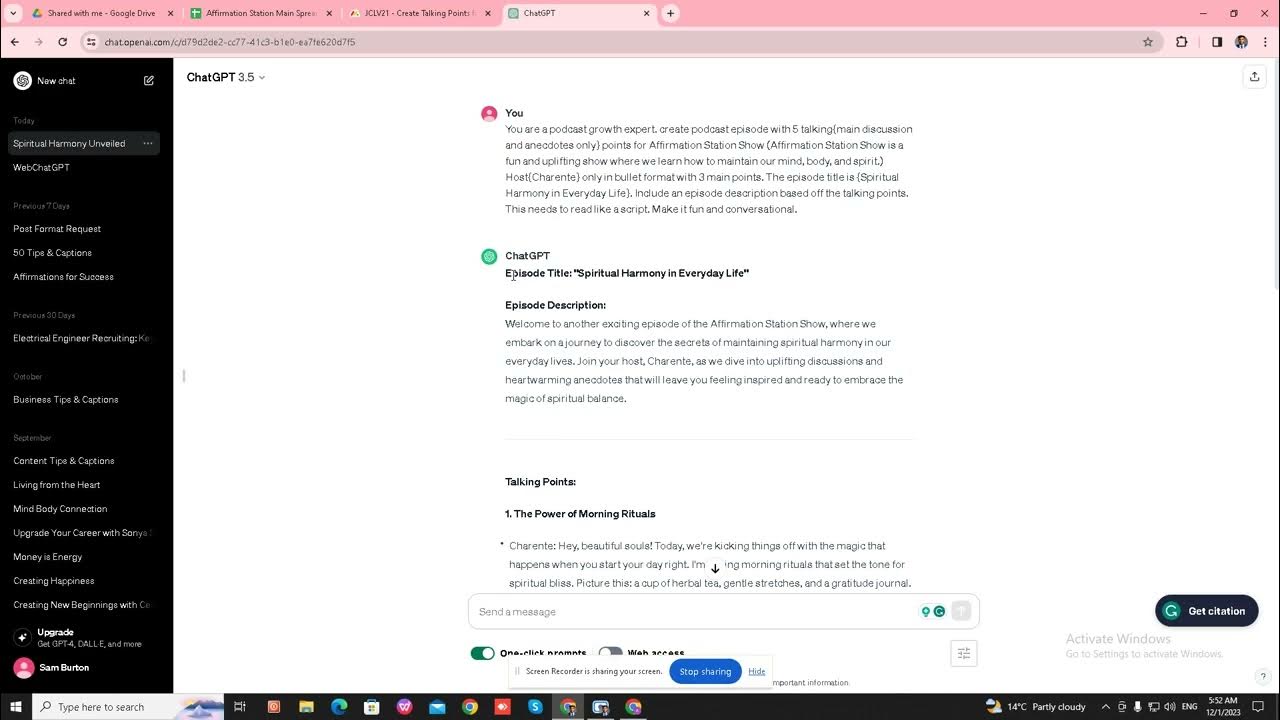Stop Dementia Before It Starts: 14 Secrets You Need to Know!
Summary
TLDRIn this episode of 'Talking with Docs', Dr. Brad Weining and Dr. Paul Z discuss the 2024 Lancet Commission report on dementia prevention. They highlight that around 50% of dementia cases are preventable through modifications in lifestyle and health. The report identifies 14 modifiable risk factors, including education, hearing loss, hypertension, smoking, obesity, depression, physical inactivity, diabetes, alcohol intake, traumatic brain injury, air pollution, social isolation, vision loss, and high cholesterol. The doctors emphasize the importance of early intervention and maintaining a healthy lifestyle to reduce the risk of dementia.
Takeaways
- 🧠 Dementia, including Alzheimer's and other types, is estimated to be preventable to a significant extent, with around 50% of cases potentially avoidable through lifestyle and risk factor interventions.
- 🎓 Lower education levels are associated with an increased risk of dementia, suggesting that lifelong learning and cognitive engagement may play a protective role.
- 👂 Hearing loss is identified as a modifiable risk factor, with the recommendation to get hearing tested and use hearing aids if necessary to maintain social engagement and cognitive stimulation.
- 🚬 Smoking is listed as a risk factor for dementia, reinforcing the importance of smoking cessation for overall health and brain health.
- 🍔 Obesity, indicated by a high body mass index, is recognized as a risk factor, underscoring the importance of maintaining a healthy weight.
- 🚶♂️ Physical inactivity is a risk factor for dementia, highlighting the need for regular physical activity to support brain health.
- 🍽️ Diabetes, particularly type 2, is mentioned as a modifiable risk factor, with lifestyle changes like diet and exercise recommended to manage blood sugar levels.
- 🍺 Alcohol consumption, with a specific note on keeping intake under 10 drinks per week, is discussed as a risk factor for dementia.
- 🤕 Traumatic brain injury is identified as a risk factor, emphasizing the importance of head protection during physical activities to prevent brain damage.
- 🌿 Air pollution is noted as a risk factor, suggesting that living in polluted areas may contribute to dementia risk and the need to take precautions in such environments.
- 🏡 Social isolation is a critical risk factor, with the importance of maintaining social connections and engagement to support cognitive health.
- 👓 Vision loss is mentioned as a risk factor, advising regular eye check-ups and corrective measures to prevent social isolation and cognitive decline.
- 🔍 Elevated LDL cholesterol is identified as a risk factor, indicating the need for managing blood lipid levels to reduce the risk of dementia.
Q & A
What is the main topic discussed in the 'Talking with Docs' video?
-The main topic discussed in the 'Talking with Docs' video is the prevention of dementia, specifically focusing on the 2024 report by the Lancet Commission on Dementia Prevention, Intervention, and Care.
What percentage of dementia does the report estimate is preventable?
-The report estimates that around 50% of dementias are preventable.
Which types of dementia are discussed in the video?
-The video discusses Alzheimer's disease, vascular dementia, Lewy body dementia, frontotemporal dementia, and mixed dementia.
How many modifiable risk factors for dementia does the report identify?
-The report identifies 14 modifiable risk factors for dementia.
What is the first modifiable risk factor mentioned in the video?
-The first modifiable risk factor mentioned in the video is having less education.
How can decreased hearing be a risk factor for dementia, and what is a suggested modifiable action?
-Decreased hearing can lead to less engagement and difficulty in learning, which may contribute to dementia. A suggested modifiable action is to get your hearing tested and consider using hearing aids if necessary.
What is the connection between hypertension and dementia, and how can it be managed?
-Hypertension can affect the small blood vessels that feed the brain, potentially leading to dementia. It can be managed through medications or lifestyle changes to bring blood pressure down to a normal level.
Why is smoking a risk factor for dementia, and what is the advice given in the video?
-Smoking is a risk factor for dementia due to its harmful effects on overall health, including the brain. The advice given is to not start smoking and to quit if one is already a smoker.
How does body weight or BMI relate to dementia risk, and what is the recommendation?
-An elevated body mass index (BMI) is identified as a risk for getting dementia. The recommendation is to try and lose weight if one's BMI is high.
What role does depression play in the development of dementia, and how can it be addressed?
-Depression is associated with a higher incidence of Alzheimer's and other types of dementia. It is treatable through various methods, and those experiencing symptoms should seek appropriate treatment from a primary care doctor.
Why is physical inactivity a risk factor for dementia, and what can be done to mitigate this?
-Physical inactivity is a risk factor for dementia as it can lead to a sedentary lifestyle, which is detrimental to brain health. To mitigate this, it is recommended to engage in regular physical activity to promote overall health and cognitive function.
Outlines

このセクションは有料ユーザー限定です。 アクセスするには、アップグレードをお願いします。
今すぐアップグレードMindmap

このセクションは有料ユーザー限定です。 アクセスするには、アップグレードをお願いします。
今すぐアップグレードKeywords

このセクションは有料ユーザー限定です。 アクセスするには、アップグレードをお願いします。
今すぐアップグレードHighlights

このセクションは有料ユーザー限定です。 アクセスするには、アップグレードをお願いします。
今すぐアップグレードTranscripts

このセクションは有料ユーザー限定です。 アクセスするには、アップグレードをお願いします。
今すぐアップグレード5.0 / 5 (0 votes)






